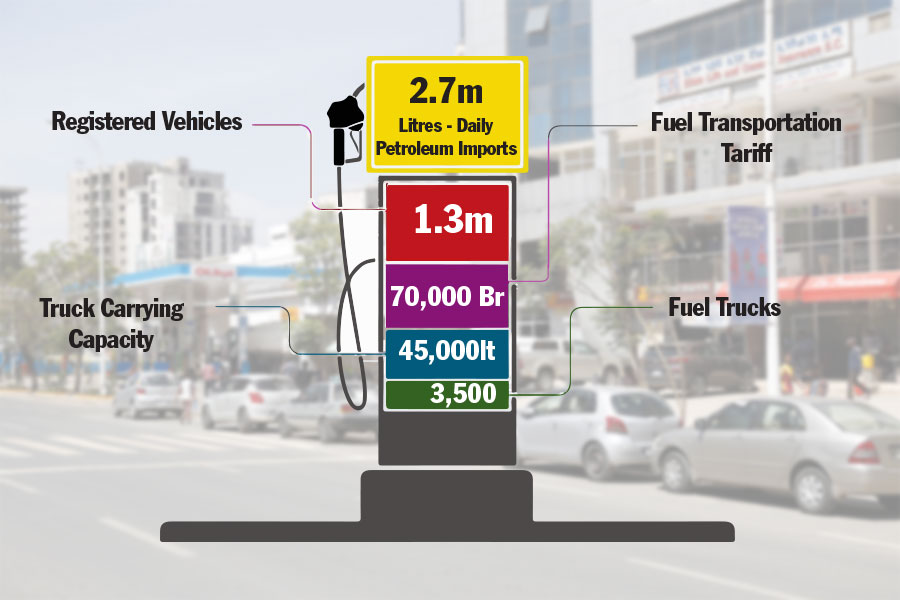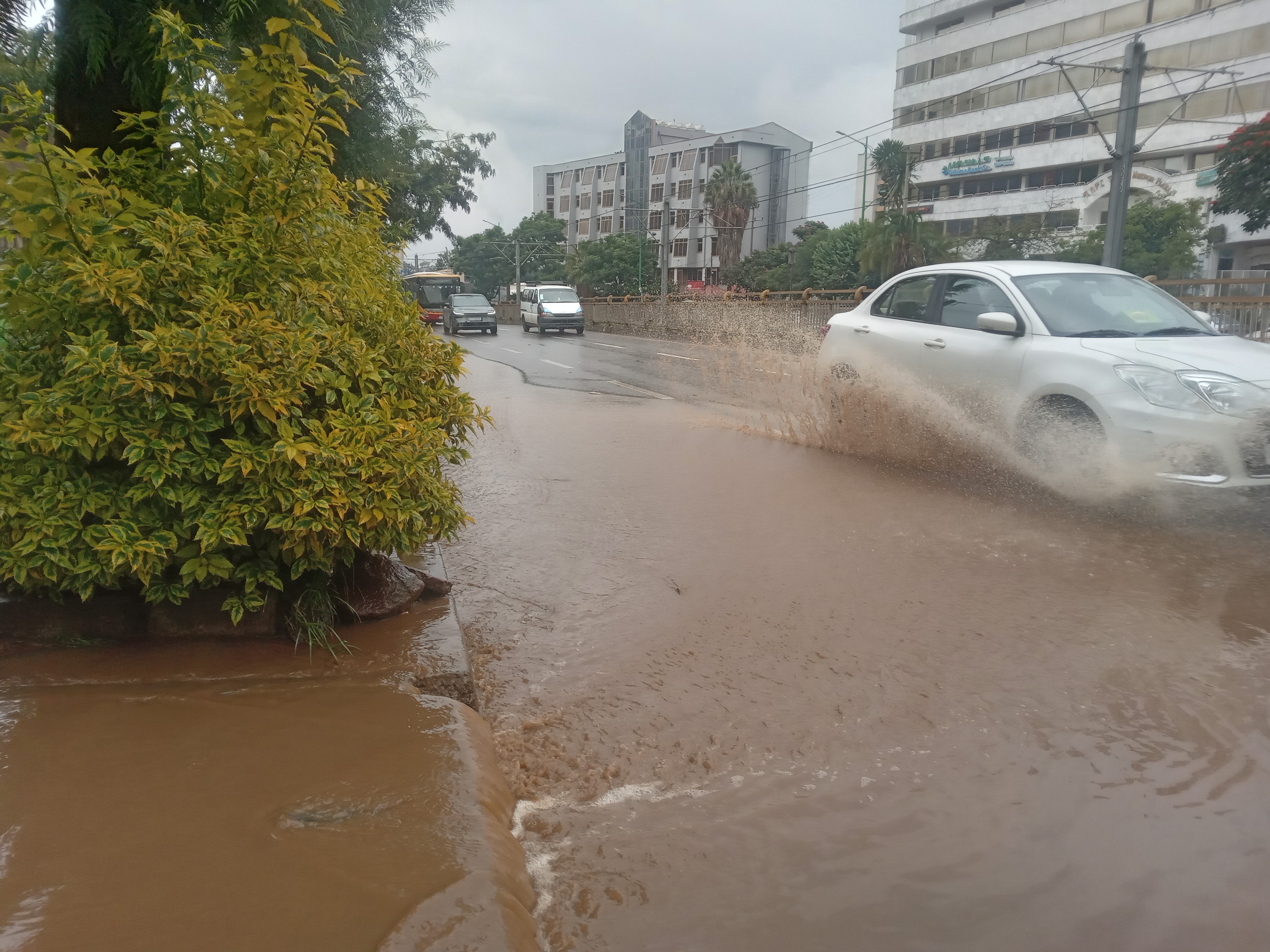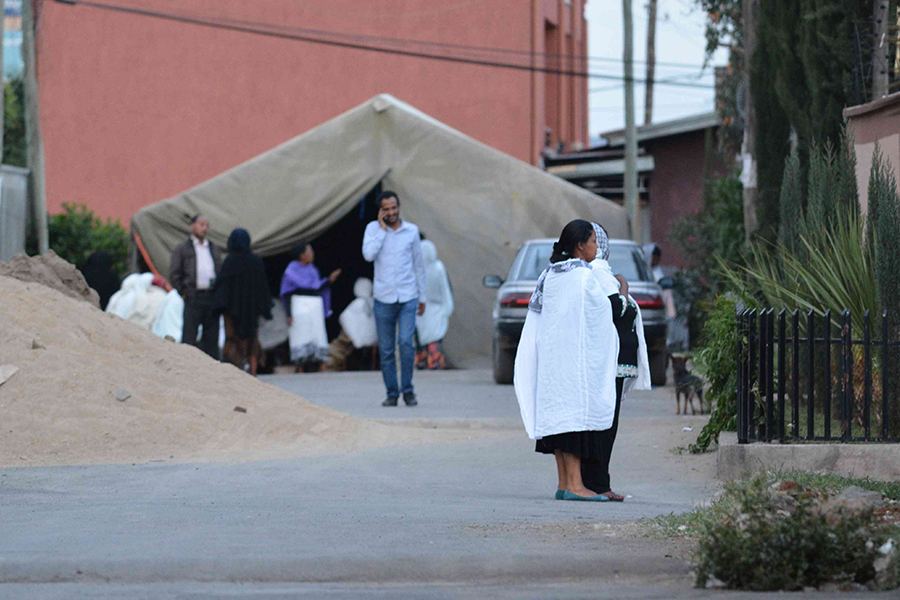
Fortune News | Feb 12,2022
Public transportation fares in Addis Abeba increased two-fold following last week’s fuel price hikes, marking the first fare adjustment in a year. The decision from Addis Abeba Transport Bureau comes on the backdrop of escalating fuel costs a fortnight ago with officials citing it as a key driver.
The Bureau’s tariff revision is the first in over a year. Officials believe while fuel prices play a major role, other factors such as maintenance costs and spare parts were also considered. According to Dagnachew Shiferaw, deputy head for transport operations, public transporters were dismayed with minimal profits.
"They were on the brink of exiting the market," he said.
He is optimistic that the new structure will ensure a steady supply of public transportation.
Minibus fares for less than 2.5Km distances have jumped from 4.5 Br to 10 Br, with other fares increasing between 26pc and 76pc. Midibuses saw fare hikes between 36pc and 43pc, while city buses experienced a moderate increase, with the shortest distance fare remaining at 10 Br for up to 12Km. However, longer routes have seen fares rise by five Birr.
Ahmed Tusa, senior adviser of the minister of trade and reginal integration said that the government's fuel subsidy program, costing 300 billion Br and covering 80pc of diesel and 75pc of gasoline prices, was designed to alleviate the burden.
Taxi transporters have dwindled by half to nearly 5,000. Authorities hope the new tariff structure will prevent drivers from quitting and ensure a steady supply of public transportation.
Berta Dawit, a transport sector expert, noted multiple factors that influence transport fare adjustments, including vehicle purchase prices, fuel costs, depreciation, spare part expenses, and maintenance fees. He said that additional considerations, such as a vehicle’s revenue based on distance and capacity are shaped by the current market value of drivers' and assistants’ wages.
He argues that if fares were left to the free market, prices would have become unaffordable. Berta also noted the deteriorating condition of many taxis and midibuses as a sign that previous fares were too low. He said older models can only travel six kilometres for a litre while newer models achieve up to 18Km. Berta suggested that the Transport Bureau conduct thorough research into their root causes. He explained that low tariffs often lead to illegal fare increases and stressed the importance of regular tariff updates to address this issue.
He points to the policy promoting electric vehicles as a potential solution. Berta argued that the widespread adoption of electric vehicles could stabilise transport costs by lowering fuel consumption and related expenses. However, he underlined incentives, such as duty-free spare parts, to make this shift feasible.
Transporters say the real cost far exceeds the price of fuel alone, and the subsidy may not go far enough.
Nuredin Didamo, president of the Blen Taxi Owners Association, noted that while this is the first tariff adjustment in a year, it does not sufficiently account for the sector’s rising costs, including three fuel price hikes within the same period.
"It still doesn't cover spare parts, maintenance, and fuel costs," he said.
The city's ageing fleet, with minibuses imported over 17 years ago, faces constant issues, with operators resorting to recycling parts due to shortages.
Recent economic reforms have led to a rise in spare part prices. According to Anteneh GebreMichael, a taxi driver for the past two decades, a single battery is now sold for nearly 13,000 Br. He said the recent fuel price increases have eroded his savings, cutting his daily profit to about 500 Br.
“I'm still living with my parents,” he said.
Meanwhile, commuters are changing for a cheaper alternative. Tsehay Lema, a resident of Kolfe Keraniyo, has switched from minibuses to city buses to cope with the rising fares. With monthly earnings of around 12,000 Br from her retail business, using transport is a vital part of her work to purchase commodities.
"I can no longer afford to use a taxi," she said.
PUBLISHED ON
Oct 20,2024 [ VOL
25 , NO
1277]

Fortune News | Feb 12,2022

Radar | Jun 30,2024

In-Picture | Jul 14,2025

Agenda | Jul 21,2024

Fortune News | Jul 23,2022

Dec 22 , 2024 . By TIZITA SHEWAFERAW
Charged with transforming colossal state-owned enterprises into modern and competitiv...

Aug 18 , 2024 . By AKSAH ITALO
Although predictable Yonas Zerihun's job in the ride-hailing service is not immune to...

Jul 28 , 2024 . By TIZITA SHEWAFERAW
Unhabitual, perhaps too many, Samuel Gebreyohannes, 38, used to occasionally enjoy a couple of beers at breakfast. However, he recently swit...

Jul 13 , 2024 . By AKSAH ITALO
Investors who rely on tractors, trucks, and field vehicles for commuting, transporting commodities, and f...

Oct 4 , 2025
Eyob Tekalegn (PhD) had been in the Governor's chair for only weeks when, on Septembe...

Sep 27 , 2025
Four years into an experiment with “shock therapy” in education, the national moo...

Sep 20 , 2025
Getachew Reda's return to the national stage was always going to stir attention. Once...

Sep 13 , 2025
At its launch in Nairobi two years ago, the Africa Climate Summit was billed as the f...